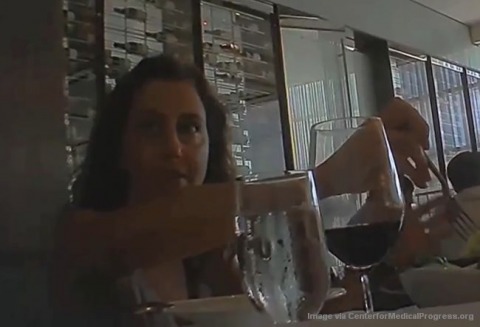
Question:
My question regards the recent videos showing officials of the organization dickering over lunch about the prices of aborted baby body parts with persons they thought were procurement agents for firms which buy such things, but who were really activists conducting “stings.”
I'm very glad that the videos are out there, not so much because they reveal that planned parenthood is doing something illegal, but because they reveal the moral corrosion of people who work in the industry. The videos horrify me because of the casual way these officials talk about abortions -- for example about using methods which aren’t as "crunchy” so that the body parts will be more intact. It isn’t about tone. It’s about moral evil.
My question, however, concerns the methods used to obtain this footage. Is lying to obtain this footage justified? Does it undermine our cause? I'm not in any way denying how powerful these videos are in shedding light on evil practices, but I wonder if such tactics discredit our calls for truth telling. I really don't know the answer.
Reply:
The way the abortion trade corrodes the souls of those involved in it appalls me too, and I am glad –- so to speak -- that some of this evil has been exposed. But that is not what you are asking. Your question concerns the means.
According to a very long tradition, it is wrong to do what is intrinsically evil so that good will result, and lying is intrinsically evil. This is easy to misunderstand. Not all forms of deception are evil; for example, the tradition has held that one may licitly set an ambush in a just war. Moreover, merely withholding the truth -– by silence, by vagueness, or by equivocation -– is not necessarily evil (although it can be in some cases).
The question, then, is what lying is. Lying has traditionally been defined as deliberately saying what one knows to be false with the intention to deceive. The justification of this definition is straightforwardly teleological. As one of the subordinate powers of rational beings, the power of language has an inbuilt purpose which surpasses any motive we might bring to the act. Speech must never be used in a way which makes it an enemy of truth.
If this definition is complete and correct, then what the agents provocateurs did to expose Planned Parenthood’s evils was lying, and should not have been done even for the sake of the good result that it achieved. One must not lie to expose lies.
However, some who are sympathetic to the methods of the sting operations argue that the traditional definition should be understood as including a tacit proviso, such that lying is deliberately saying what one knows to be false with the intention to deceive someone who has a right to the truth. In this way they argue that what the agents provocateurs did was not lying, because the Planned Parenthood criminals did not have a right to the truth.
In my opinion the agents provocateurs were indeed lying. But even if I am mistaken – even if they were not lying -- their methods are not ethically in the clear.
Why? Whether or not deliberately saying what one knows to be false with in the intention to deceive is a complete definition of lying, it certainly corresponds to what people in general understand lying to be. This makes the act a moral stumbling block, what used to be called a “scandal.”
By exposing abortionist lies even by telling what merely seem to be lies, one encourages the view that the defenders of life are no more honest than the murderers, and at the same time promotes the idea that one may do evil for the sake of good. I understand the awful sense of desperation -- temptation often feels that way. But there lies the edge of an abyss.